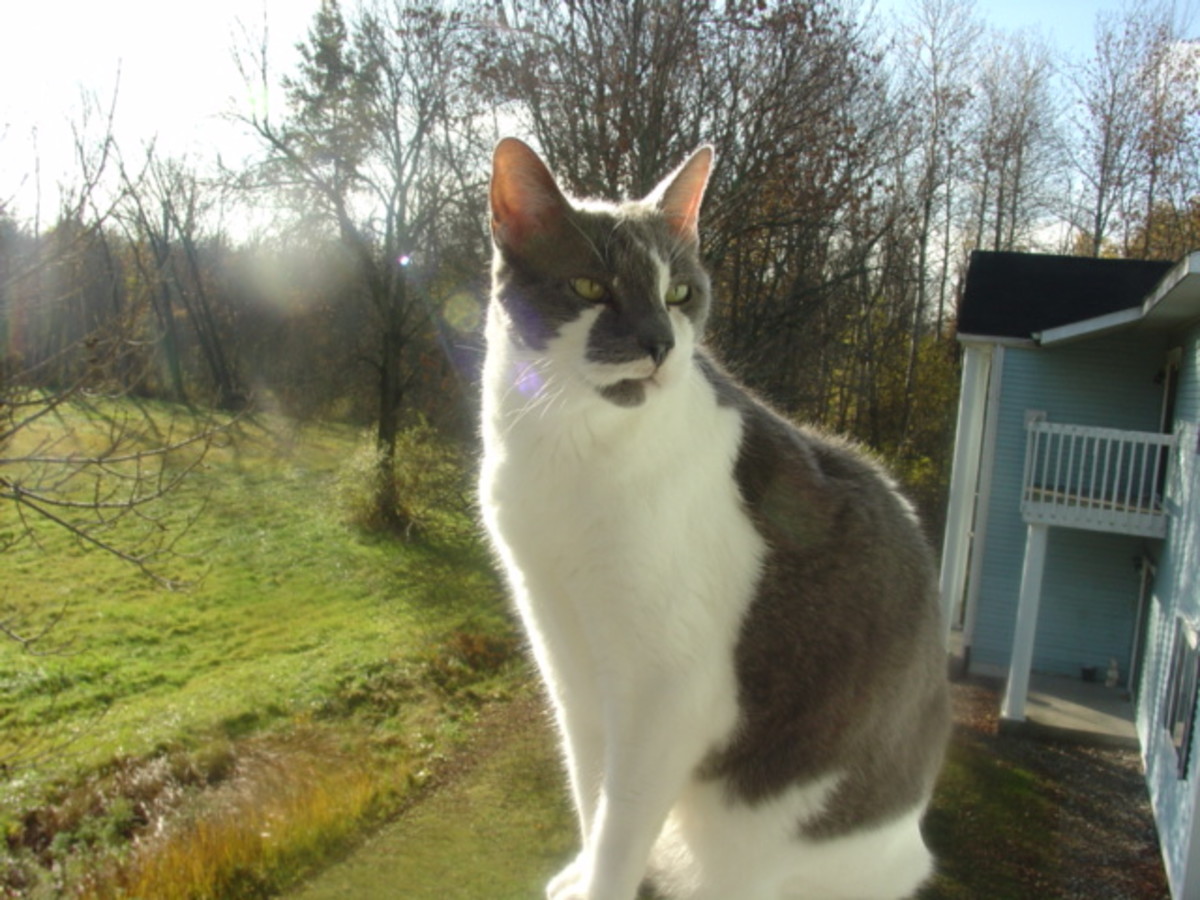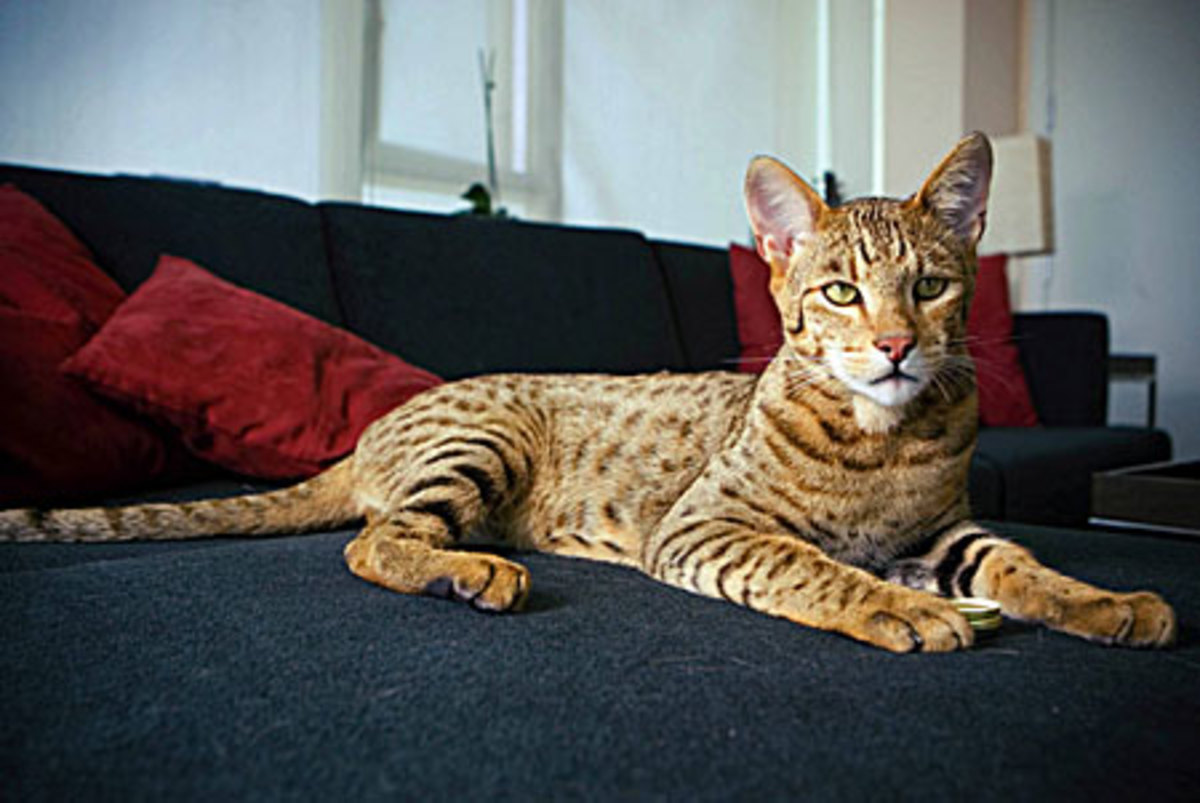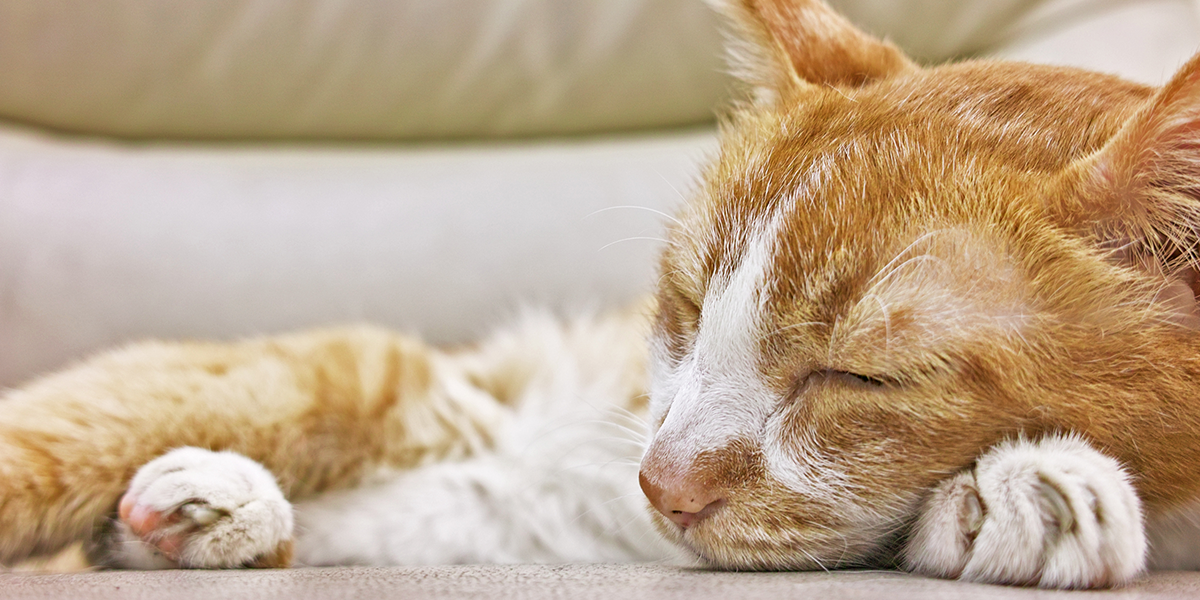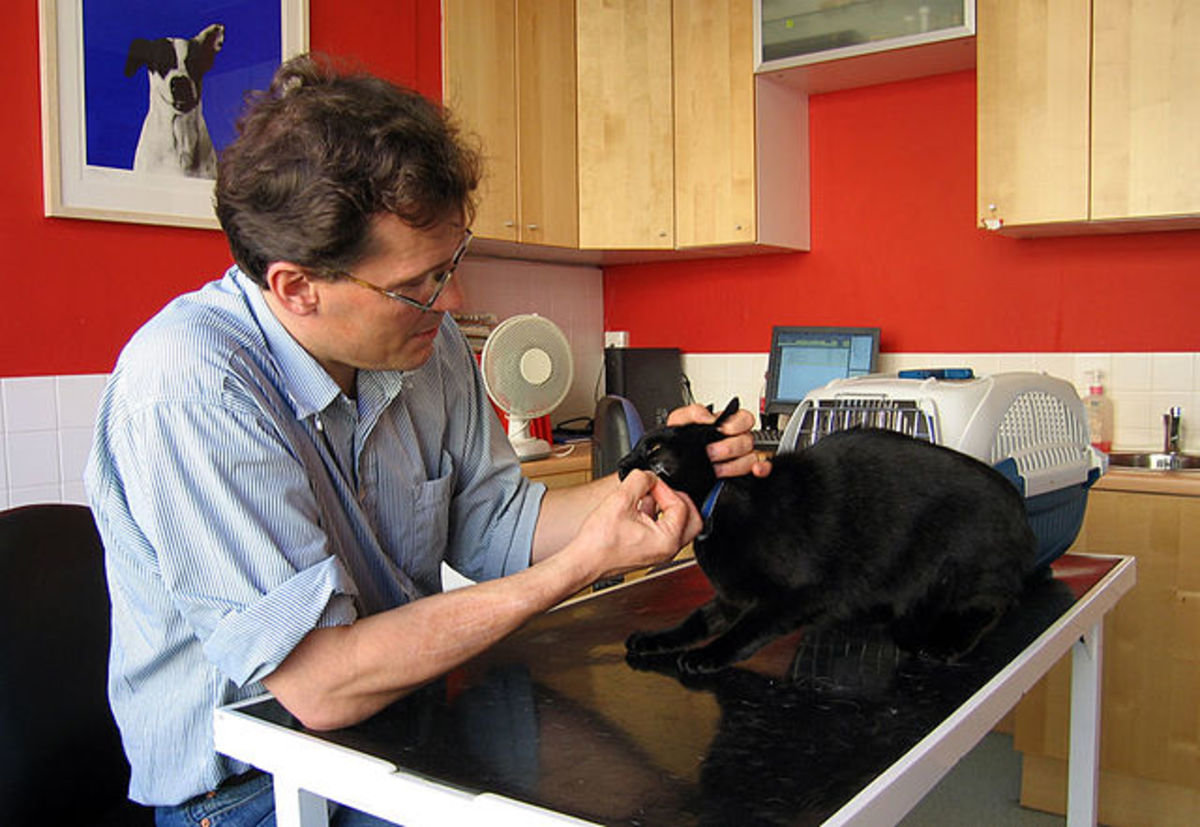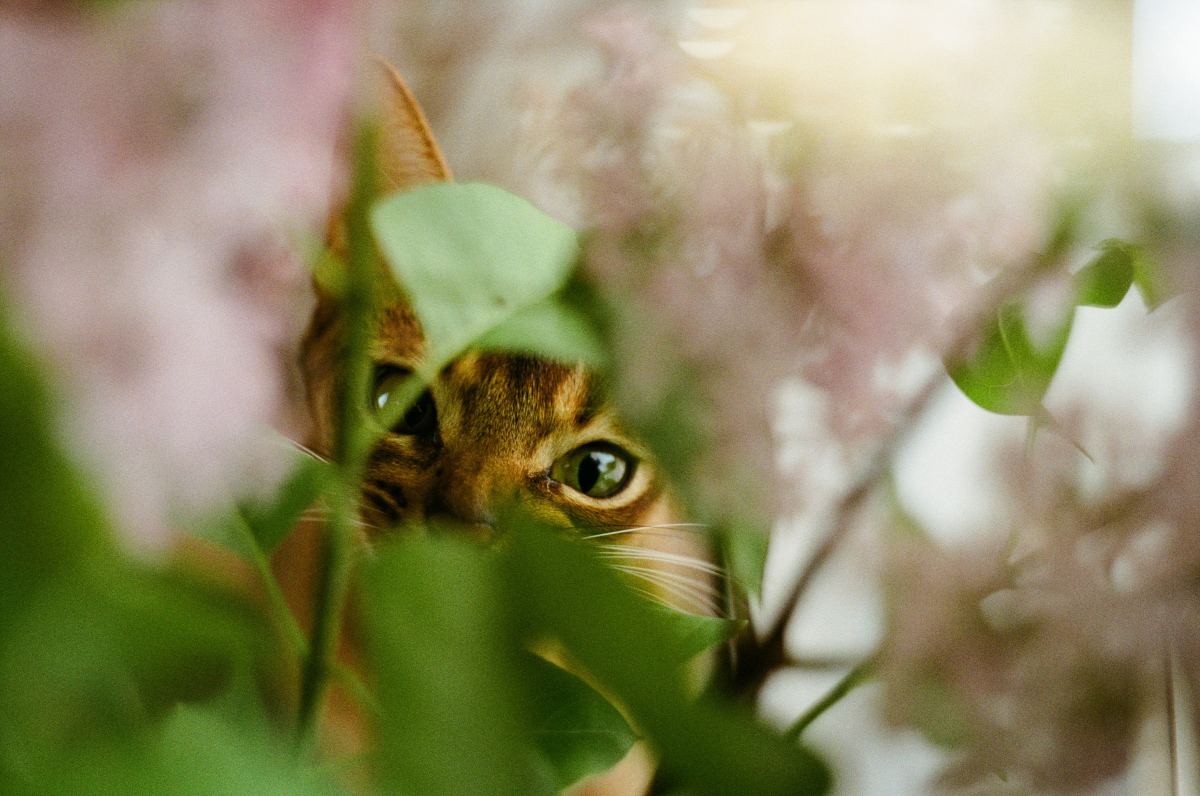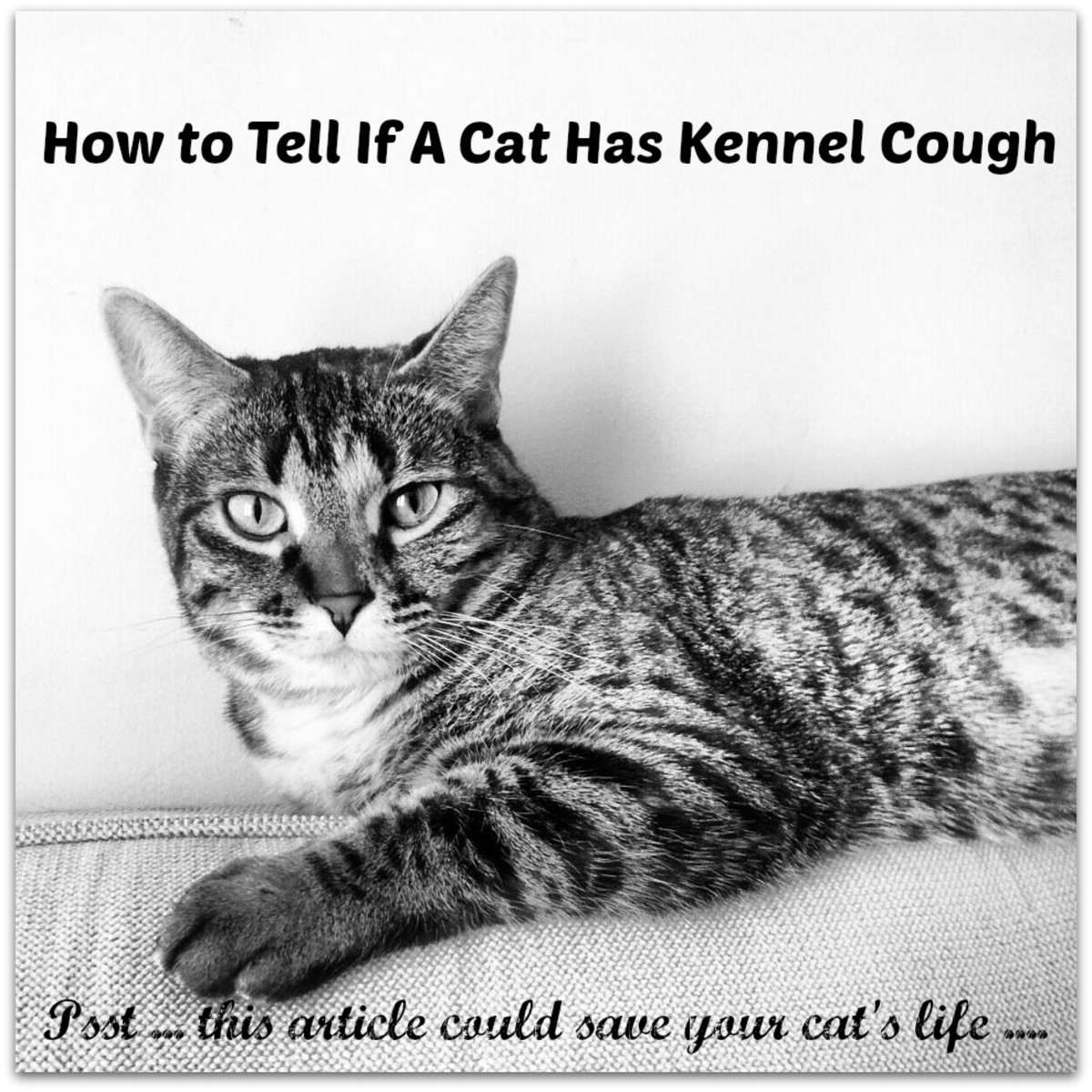Feline Immunodeficiency Virus: The Facts
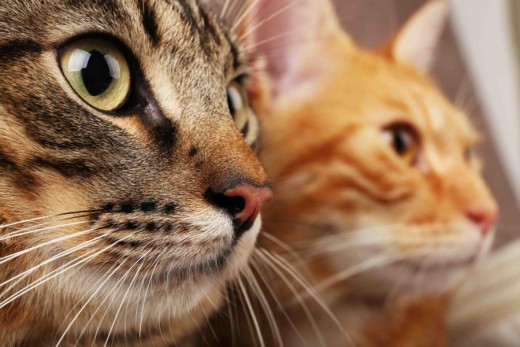
If your cat tests positive for FIV, it may seem like the end of the world. Similarly, people looking to adopt a cat from a rescue center or sanctuary will often overlook FIV+ cats in favor of other “healthier” cats, meaning that many FIV+ cats sadly face never finding their forever homes, instead spending the rest of their lives in shelters. The reality is that with the right love, care and attention, an FIV+ cat can live a long and happy life.
Part of the problem is the general lack of knowledge about FIV and what it means and the misunderstanding that a cat with FIV has “cat AIDS.” When I told my brother I'd adopted an FIV+ cat and explained what it meant, there was a long silence before he tentatively asked whether it was safe for humans to be around her. Now, my brother is a brilliant man (and I'm not just saying that because he's my brother!), so it just goes to show how little is known about FIV to the average person.
What Is FIV?
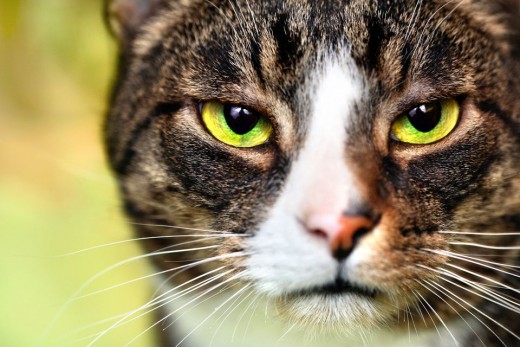
Feline Immunodeficiency Virus is a lentivirus, and as the most commonly known lentivirus in humans is Human Immunodeficiency Virus (HIV), it's no wonder that many cat owners panic when they discover that their cat is FIV+. Unlike HIV, the FIV strain that's carried in who live as family pets is very benign, so the symptoms and consequences of the virus are much milder than in cases of HIV in humans.
FIV reduces the white blood cell count of infected cats, meaning that their bodies are less able to fight off infections, although the virus is generally very slow-acting so infected cats can live full and happy lives with minimal health issues caused by FIV. The virus is carried in the blood and saliva of infected cats and is most commonly transmitted through cat bites when the saliva of an infected cat enters the bloodstream of the cat being bitten. It's less commonly transmitted through an uninfected cat biting an infected cat, and it's difficult to be passed from cat to cat just by sharing food bowls or toys, as the virus is very fragile when it's outside the cat's body.
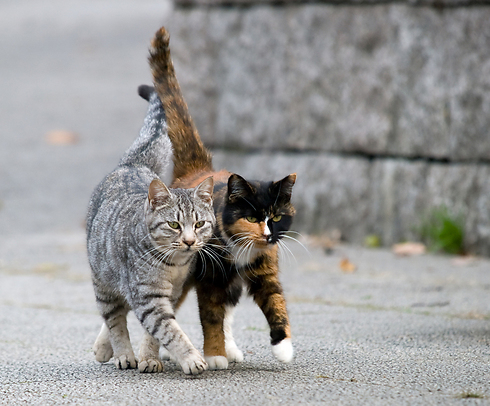
How Will FIV Affect Your Cat?
FIV means that infected cats have a compromised immune system, so owners of FIV+ cats should take extra care in keeping their cats protected and healthy. FIV+ cats are less likely to be able to fight off any infections they pick up, so it's important to keep a cat with FIV as safe from infection as possible.
FIV is more of a risk in stray cats because their lifestyle usually means having to fight for food and territory, and the lack of care and attention they get means that they're more likely to develop secondary infections which without veterinary treatment can have severe consequences. On the other hand, a domestic pet cat is more likely to stay free of infection, and with regular vet care any secondary issues can be treated immediately. The reaction usually depends on whether the cat is otherwise healthy or is unwell at the time of diagnosis. If the cat is already showing signs of illness the prognosis is much poorer, so the diagnosis will clearly be more unwelcome.
Cats in the final, chronic stages of FIV (FAIDS) are likely to suffer from a number of general health issues including mouth and gum disease, recurrent infections and diarrhea, but the majority of FIV+ cats don't reach this stage for many years.
When it comes to the average life expectancy of an FIV+ cat, it's difficult to determine. It really depends on when the cat is diagnosed and the state of health they're in at the time. If a cat tests positive when they're well and can be well-man-aged, the life-expectancy will be higher than if they're already ill at diagnosis.
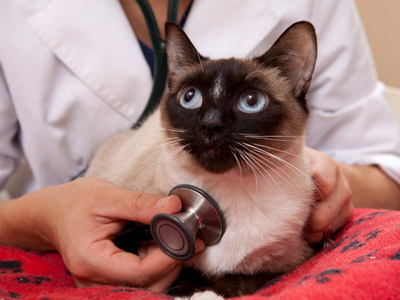
Top Tips For Keeping FIV+ Cats Happy And Healthy
- Environmental enrichment inside the home
- Regular vaccinations with inactivated (not live) vaccines
- Regular veterinary check-ups to pick up early signs of illness
- Good dental hygiene to reduce bacterial load in the mouth
- A well-balanced diet.
How To Care For An FIV+ Cat
Caring for an FIV+ cat is not that different to looking after uninfected cats; they all need plenty of love, care, and attention. A good diet of high-quality food with all the essential nutrients a cat needs is of particular importance for FIV+ cats, and vitamins that boost the immune system are a good addition to their diet. Regular check-ups are needed, so your vet can keep an eye on any issues that might occur, and if your FIV+ cat shows any sign of illness you should go to the vet straight away to make sure that any problems are treated immediately.
Keeping an FIV+ cat in a stress-free, indoor environment is important not only for the infected cat but also to prevent the spread of FIV in the local area. If you think you might struggle to keep your cat indoors, provide enough environmental enrichment in your home: plenty of stimulation with climbing frames, etc., plenty of human interaction and ideally an enclosed outside run.
Adopting an Fiv+ Cat
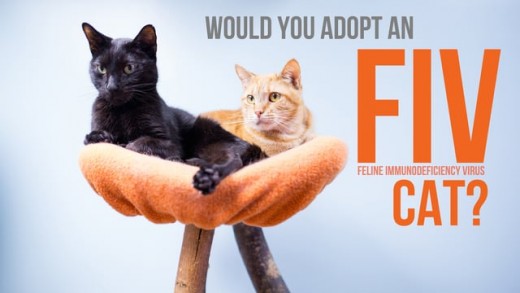
Although the majority of pet cats aren't tested for FIV as a matter of course, so it's often only when they start to show signs of illness that they're diagnosed, cats who are going to be put up for adoption are tested for a number of feline illnesses as part of the process.
If you see an FIV+ cat available for re-homing from a shelter or cat rescue, it will be generally healthy and could go on for a long time before it starts to develop any signs of illness. Sadly, for those cats that come into shelters already ill, typically strays who haven't had the care and attention a loving home can give, the recommended advice is usually euthanasia. So many FIV+ cats are passed over in the search to adopt the perfect family pet because potential adopters don't realize that an infected cat has a reasonable chance of living a long life.
While there's no cure for FIV, with proper care and veterinary treatment if the cat gets ill, the future for FIV+ cats can be good.


